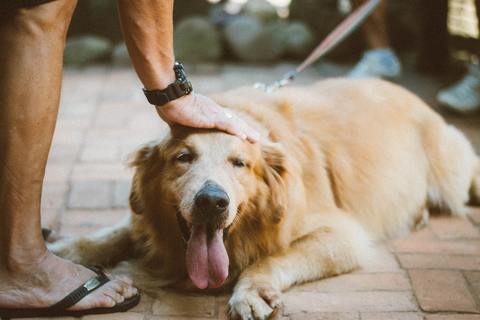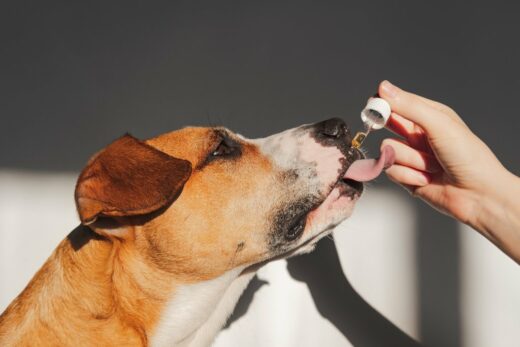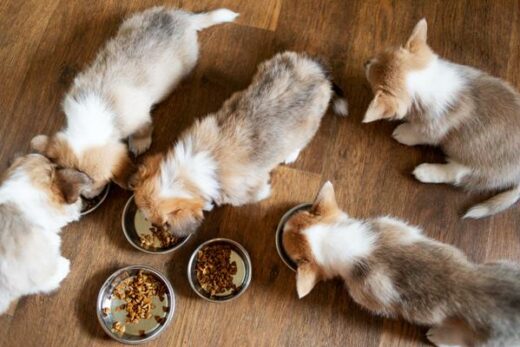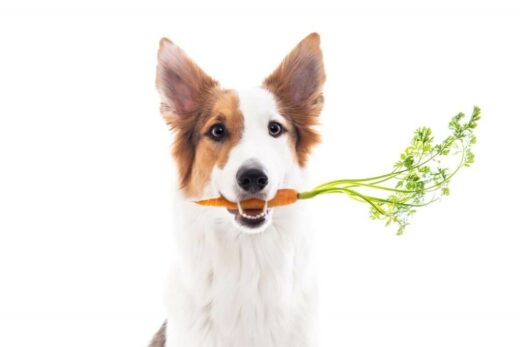
When you look into your dog’s eyes, there’s a great chance you still see the sweet puppy or dog you brought home years ago. While deep inside, your dog is the same sweet canine companion you love so much, your dog’s dietary needs have changed. So what is the best thing to feed an old dog? This article will go over how to keep your older dog healthy with a nutritious diet, that is tailored to an elderly dog’s needs.
When Should Your Dog Switch to a Senior Diet?
Not all dogs age at the same rate. Furthermore, the “one human year equals seven dog-years” formula is not an accurate way to determine when your dog is “old.” When determining when to alter your dog’s diet, you will want to look for signs of aging and consider their size or breed-mix.
Some of the most apparent signs that your dog is over the hill include:
-
- Greying around the muzzle
- Slowing down in movement and response
- Sleeping more
- Gaining weight
- Having trouble seeing or hearing
To determine your dog’s age, keep in mind that smaller breeds age slower. Giant and larger breeds tend to age more quickly, though. It’s safe to say once your dog reaches six as a larger breed, you will want to consider your dog a senior canine citizen. If you have a smaller breed, your dog will benefit from a change in diet around the age of ten.
What is the Best Diet for a Senior Dog?
The best diet for your dog meets their unique needs and helps them stay active, maintain a healthy weight, and feel their best. This is all about balancing calories, flavour, carbohydrates, minerals, vitamins, and fibre.
Protein:
Protein is the most important factor in your dog’s food. Senior dogs need more real-animal protein. Why? Protein protects muscle mass. Once this muscle begins to dwindle, a dog’s immune system will also begin to struggle. A high-protein diet also regulates metabolism and helps the body heal. Additionally, amino acids found in meat help the body burn fat, helping your dog ditch excess weight.
When choosing the right food for your older pup–do not skimp on the protein quality or amount.
Beware that many foods will try to boost protein levels with non-meat proteins. These are low-quality proteins and not processed by your dog’s body the same way real animal proteins are, rendering them useless. In other words: if it doesn’t come from an animal source, it doesn’t count towards your dog’s protein intake.
When all is said and done, you want a food with a high percentage of real animal protein. Higher quality proteins like lamb, duck, kangaroo, goat, and bison can support a dog’s body and prevent food intolerances.
Calories & Fat:
When it comes to calories, senior dogs’ energy needs decrease by 25%. This means you can lower your dog’s caloric intake to about 75% to 80% of the calories they consumed as younger dogs.
Along with fewer calories, old dogs also require less fat.
Once dogs hit their late senior years, though, they will begin to drop weight. At this point, your dog will actually need more calories and a nutrient-dense diet.
Texture:
Furthermore, many senior dogs struggle with dental issues which can make chewing difficult and painful. Softening your dog’s food with water can make kibble easier to chew.
Minerals & Vitamins
For the most part, old dogs benefit from less salt. Yet your dog’s diet isn’t just about cutting back. Elderly dogs benefit greatly from the supplement support of glucosamine and chondroitin, L-carnitine, and collagen. Old dogs also benefit from vitamins C and E, which can be found in a lot of fruits and veggies.





